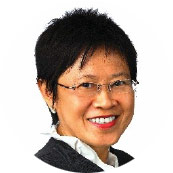Good Questions and Show of Evidence
![]() Ms Ang Bee Lian, 21 September 2015
Ms Ang Bee Lian, 21 September 2015
Dear Students of Social Work,
Good Questions with the End in Mind
It is not uncommon for practitioners and interns to rush into getting something out such as an evaluation, a survey, a compilation, a report or another submission. By starting from this point, we often miss out on being clear about what the work is supposed to achieve.
To counteract this tendency, it is good to work with the end in mind. It helps to always ask good questions. For example, when we ask for an evaluation, it is helpful to write an evaluation brief. This is a short write up outlining what the person drafting the evaluation or proposal needs to cover. In the case of calling for a tender for a service, this would ensure that the final tender proposals will be of better quality. When requesting updates on cases, it is helpful to use specific questions which may include asking the respondent to provide a professional assessment or evaluation at that point in time. Such efforts and clarity will increase the chances of having all the information that is needed to make a decision.
Before writing the brief such as an evaluation brief, you should think through the following points:
Who will do the work? In the case of a large piece of work, do you want some parts of it to be done internally or by several parties or persons? Even mulling through this step will mean thinking about capability and capacity both internally and externally. It is also useful to show supporting materials or existing materials and relevant websites that the drafter can refer to. Nothing like having websites as references to discuss what the eventual product, output or outcome might look like. There are limitations to how words alone can do the job of communicating so these sites will be useful. In today’s context, these are examples and options that can serve as starting points for discussion.
What will the focus of the evaluation be? For example, will it focus on the whole program or just parts of the service? What is the purpose of the evaluation? Is it to help strategic planning or to obtain more funding?
What are the evaluation questions? What are the outcomes that we want to find out and who are we finding these outcomes for? This latter part can mean that there may be different outcomes for different individuals or parties. How will the evaluation be used? For example, will it be used to help you develop and improve a service, or to demonstrate accountability to funders, or both?
Such are the kinds of questions to consider before rushing into a piece of work or submission. We have all heard this, “now that is a good question.”
Sharpened Thinking and In-depth Focus
Who will read and use the evaluation report? How do we expect data to be collected or the report to be written? And who are the key stakeholders the drafter of the proposal should speak to? In today’s context this is always termed as who to consult. Who is consulted will shape the thinking of the drafter and the outcome of the final proposal and hence this should not be rushed through. Efforts should be made to ensure that the shortlist of those consulted helps to sharpen the thinking and bring in-depth focus to the evaluation report.
Guide on How to respond to "Show of Evidence"
Besides good questions, there are often situations where an agency, a service or a program is required to show evidence that it has exercised a standard of care. For example, a report may require evidence that a program is providing the appropriate care, appropriate reason and appropriate plan for the right client. Appropriate here would mean safe, ethical and effective care.
So how would we show evidence of this requirement? These could be ways of doing this – (i) Show relevant procedure documents, policy documents and training materials; (ii) Provide a sample of the actual documentation; (iii) Describe or explain the process of how an assessment is made and the follow up actions.
What should the documentation show? It should show that there is proper assessment, a plan that is followed and reviewed, and the evaluation of interventions and outcomes. Assessment and evaluation must be made by persons with the appropriate knowledge, skill and judgment.
Each requirement or cluster of requirements will aim to confirm one key domain in the standard of care or a key concern such as safeguarding the dignity of the person. It is important to explain the understanding behind a particular practice and how the practice complies with the standard of care.
Evidence should also show the interrelationships that support the clients. Documentation should demonstrate (i) communication and respect for the clients; (ii) accountability of staff and the program and (iii) attention to the care, safety and welfare of the clients.
Documentation is used to communicate among those involved in the care of the client. It establishes the facts and circumstances related to the care given and assists in the recall of details in a specific situation. As such, documentation should be clear, concise, factual, objective, timely and legible.
Integral to due diligence is decision making by the appropriate level of authority or professional practice. By this we mean that an appropriate person is assigned specific levels of decisions and based on a set of professional principles that are documented.
Good practice begins with taking time to ask good questions. It continues with documenting the planning, implementation and decision making process. Safe practice is about being professionally and ethically accountable and delivering services to clients right to the last mile.
Download the full letter here
 | MS ANG BEE LIANDirector of Social Welfare (1 Nov 2013 - 30 Jun 2020) |